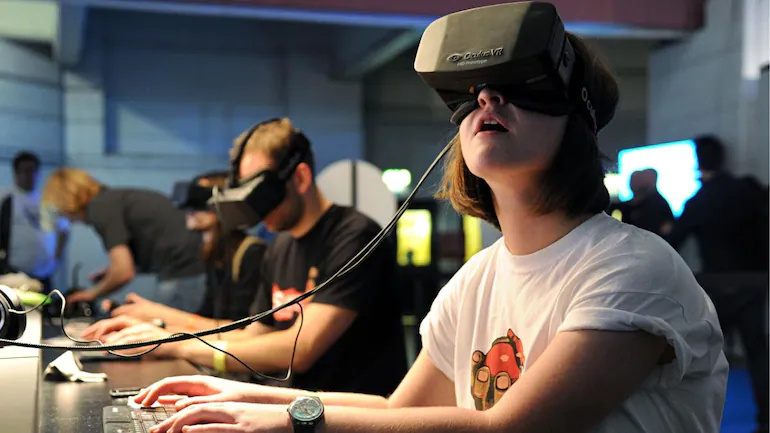Mahindra Lifespaces unveils India’s first home buying experience on the Metaverse
SOURCE: HTTPS://INDIATECHNOLOGYNEWS.IN/
OCT 31, 2023
From Zoom classes in 2020 to Metaverse in the near future: How education is going digital
SOURCE: INDIATODAY.IN
APR 16, 2022

The onset of the pandemic in 2020 had a catastrophic effect on schools and colleges. They were forced to cancel physical classes amidst all the uncertainty, finally resorting to online Zoom and Microsoft teams-based classes. Students, teachers, and even parents began getting used to the new way of learning. Classes on smartphones or laptops slowly became the new way of learning.
Cut to 2022 -- online classes have become part of the new normal and now new promises are paving the way for a new era of innovation. With Metaverse as the future, experiential virtual learning platforms are playing a crucial role in enabling students to engage in highly interactive and engaging live classrooms sessions during the ongoing pandemic.
Owing to technology, we are witnessing significant changes to how people meet and interact in the virtual world.
It’s also opening new avenues for students, educators, and parents to meet and interact while staying safe. The virtual universe tools and blended learning models, give students and teachers greater flexibility for pacing the curriculum as well as to conduct meets and augment practical learning experiences even without visiting the campuses.
In 2020, pandemic forced schools and students to continue learning online. Like students at educational institutions, all of us have been affected by the pandemic in some way or the other. But the extent of this impact has varied greatly.
These shockwaves have been felt across industries but emerging technologies and innovation in the virtual space have put things in perspective.
RECOMMENDED
The education industry has particularly benefitted from experiential platforms that not only personalized experience but also but opened new doors of possibilities for them.
With Metaverse becoming a reality in the near future, embracing new digital infrastructure is vital to make use of new opportunities for learning.
Metaverse, like the Internet or even the smartphone, is revolutionizing the way we access information and interact with others.
In a world where artificial intelligence, augmented and virtual realities are empowering students from every part of the globe to acquire advanced skills, knowledge, and understanding while reducing their dependence on physical infrastructure.
This is further setting the stage for a dynamic and exciting future in which people can get together socially on a virtual platform and exchange ideas with one another.
Think of a Metaverse that can serve as a platform to deliver direct education and customize instruction based on the learning style and individual ability to grasp content.
With 5G and with availability of high network speed, the vision of personalized learning and virtual school visits can be expedited, making Internet access more convenient.
Technology integration in education is making it informative and engaging. Experiential learning techniques pave the way to the classroom to boost students’ motivation and engagement during learning and teaching sessions.
Adding interactive elements to supplement study material on a device in virtual environments can be beneficial in stimulating the interest of the students in different subject areas as well as being used as the basis for class activities.
With the aid of these cutting-edge technologies, students can learn holistically and reflect carefully on concepts.
In a nutshell, emerging technologies and virtualization have become a great leveller and enabler for the education industry.
From helping keeping the wheels turning to break barriers of boundaries, technology is helping the institutions to build an inclusive, innovative, and futuristic ecosystem.
- Article by Piyush Gupta, President, Kestone
LATEST NEWS
WHAT'S TRENDING


Data Science
5 Imaginative Data Science Projects That Can Make Your Portfolio Stand Out
OCT 05, 2022

SOURCE: HTTPS://INDIATECHNOLOGYNEWS.IN/
OCT 31, 2023
SOURCE: HTTPS://FINANCE.YAHOO.COM/
SEP 28, 2023
SOURCE: HTTPS://MEDIABRIEF.COM/
SEP 22, 2023
SOURCE: HTTPS://WWW.BUSINESS-STANDARD.COM/INDIA-NEWS/METAVERSE-WEB3-MARKET-TO-GROW-40-ANNUALLY-TO-REACH-200-BN-BY-2035-123060200394_1.HTML
JUN 28, 2023
SOURCE: HTTPS://WWW.WIRED.COM/STORY/WHAT-IS-THE-METAVERSE/
JUN 20, 2023